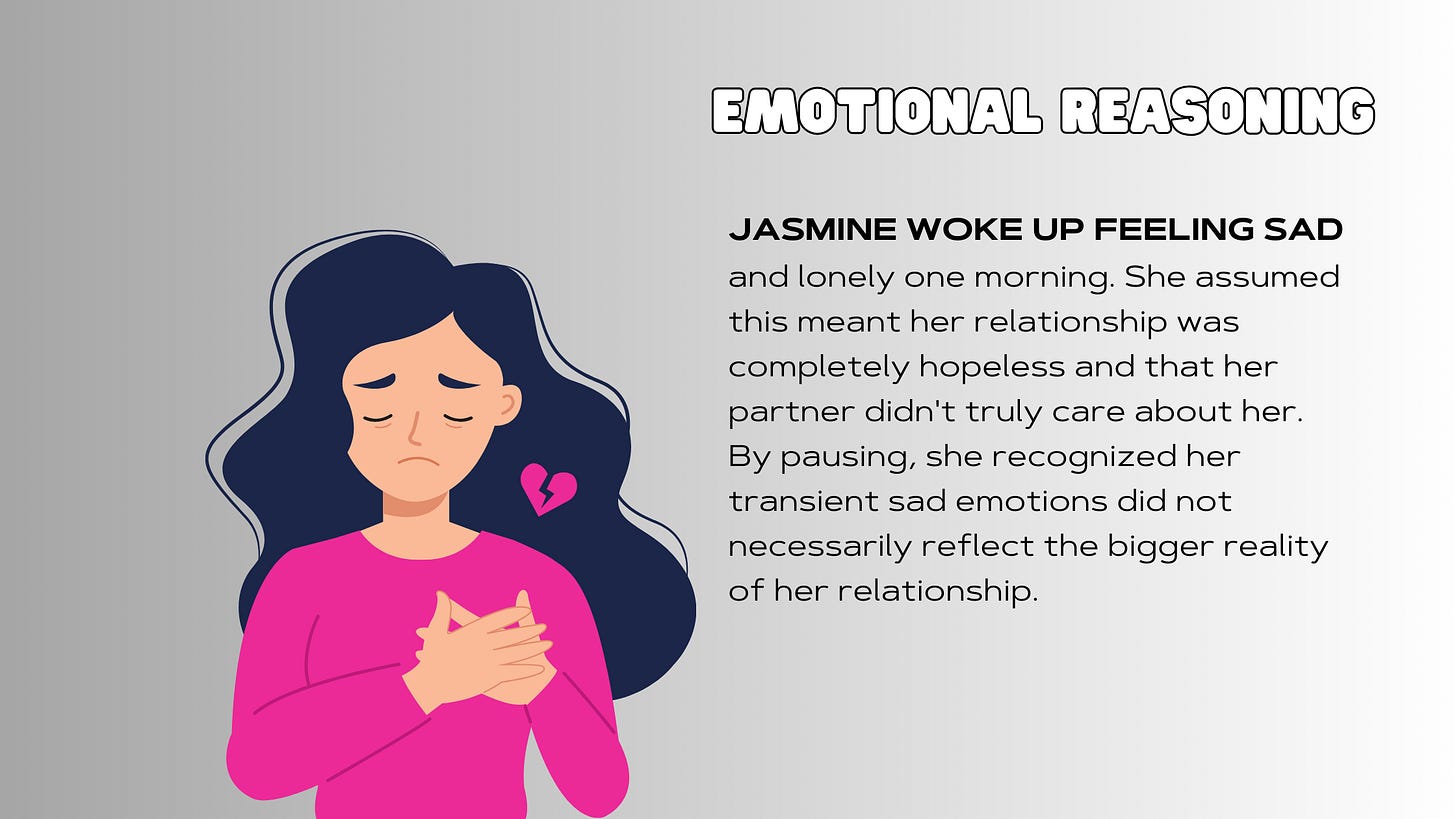What is Metacognition and How to Use it to Overcome Self-Sabotage
Metacognition is just a smarty-pants term for thinking about how you think.
Have you ever paused to think about your thinking? That may sound odd, but paying attention to your thoughts is incredibly helpful. This is called metacognition.
Metacognition simply means being aware of and examining your own thought processes. If that sounds familiar, you might recognize metacognition in practices of mindfulness.
By getting curious about your mental patterns in a non-judgmental way, you not only gain self-knowledge but the opportunity to respond strategically rather than reactively.
To us, our thoughts may seem like absolute truth, but in reality they are simply opinions generated by the mind that can be flawed or limited in perspective.
It’s easy to get tripped up by the bias of our thoughts. Certain kinds of thoughts like fear-based ones, emotional projections, ruminating loops, or exaggerated narratives can become so urgent that our body goes into fight or flight mode – and nothing feels more real than that chain reaction triggered by our nervous system! That's why developing the ability to create emotional distance from our thoughts in order to observe them more objectively is so important.
Being able to step back and identify thought patterns gives us freedom to respond intentionally. By pausing and cultivating enough separation from our thinking to become genuinely curious, we can begin to recognize when thoughts might be biased, incomplete or unhelpful. We gain power over our thinking rather than being controlled by it.
Noticing thoughts as transient mental events rather than absolute reality is freeing. This aligns with mindfulness - observing thoughts come and go without getting entangled in them. Listening patiently rather than believing every thought provides meaningful space between our thoughts and our actions.
The next time you notice yourself stressed or upset, pause and get curious as if you were putting your thoughts under a microscope and ask yourself “What stories or assumptions is my mind creating right now?” Getting insight into our internal narratives is powerful.
SELF-SABOTAGE
At Lil’ Habit, metacognition is the tool we use that helps you meet your Resistance.
Resistance is the inner voice that keeps you in your comfort zone with limiting stories and beliefs. When you examine these thoughts with curiosity instead of judgment, you can transform Resistance from saboteur to helper.
I first learned about “Resistance” from author Steven Pressfield, who described it as an enemy that tries to stop you from doing work you’re called to do. For example, when it was time for me to work on this article and prepare for my upcoming speaking event, my Resistance told me to take the entire day off!
“You have much more urgent things to do, actually you have way too much to do! You need to rest.” - Andrea’s Resistance
Your Resistance will use whatever beliefs resonate with you to frame change as risky. My Resistance tells me self-care stories and encourages me to let myself off the hook. It’s no accident that this “self-care story” speaks to me. I’m a Life Coach, after all! And honestly the toxic way Americans are conditioned to “go big or go home” is one of the reasons I entered the arena.
But here’s what I’ve learned by tuning in to that inner voice in a non-judgmental way - Resistance isn’t my enemy to fight. She’s the guardian of my status quo and she activates whenever I push past my comfort zone. She’s a misunderstood helper who worries about all the things I’ll lose when I shake up my status quo. One of her beliefs is that success is a thankless crisis!
Instead of arguing with Resistance, I create some space between me and my thoughts and I recognize those limiting stories aren’t my true beliefs. Then I soothe Resistance’s concerns with compassion. “I get it. I did completely blow up my immune system by overworking in the past.” And then I reassure Resistance that I see the risk and that stepping outside of my comfort zone is worth it. “I know better now and I value my boundaries. I have meaningful ideas to share that will help people create new paths and that is important to me.” And finally, I choose a lil’ action as my next step. “I’ll set a timer and write for 20 minutes.”
Using metacognition to catch slippery stories and meet Resistance with empathy is powerful. Don't battle your Resistance - befriend them.
Some steps when meeting your Resistance:
Pause and notice the thoughts arising.
Get curious about the origin of these thoughts.
Reframe the thoughts from fixed truths to passing opinions.
Respond with understanding.
Integrate insights constructively.
I invite you to explore your inner world with self-compassion. The capacity for self-reflection is a uniquely human gift - may you use it wisely.
"One of the simplest ways to redirect things, when we are not sure of the way out, is a question: ‘What would I do if I was at my best?’ Now, if you are experiencing dark times and depression, you cannot expect yourself to be doing whatever you would be doing at your best. But you can create a mental picture of the direction you want to move in. So, if I am sitting ruminating on a painful experience in my life and have lost several hours to that churning, I can ask myself that question. The answer may be, ‘I would stand up, take a shower and put some music on that lifts my mood. Or perhaps I would pick an activity I enjoy" — Dr. Julie Smith, Why Has Nobody Told Me This Before?
If this resonates with you, help make it stick by discussing it with a friend.
MORE RESOURCES
Disclaimer: My Substack posts are my personal reflections and should not be taken as clinical guidance or treatment. Consult qualified experts regarding your specific health needs.








